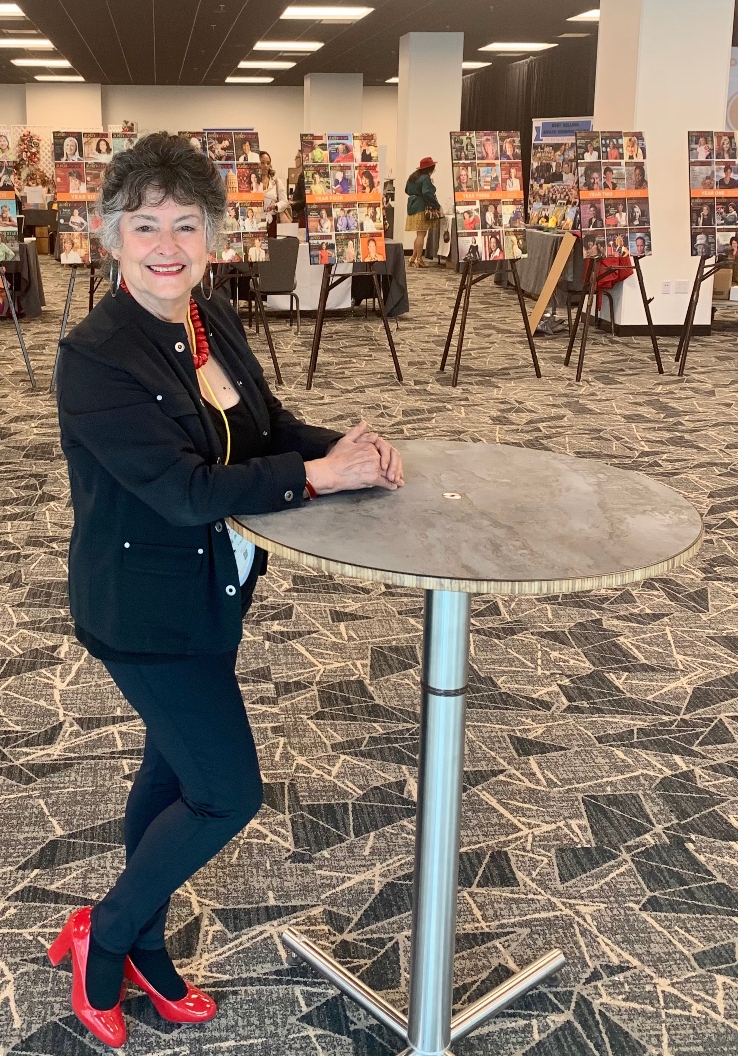Las Comadres Para Las Americas Founder Nora de Hoyos Comstock, Ph.D., has made intentional inclusivity part of her identity.
By McKenzie Hennginsen, Feature photo by Olga Campos Benz
Dr. Nora de Hoyos Comstock, national founder of Las Comadres Para Las Americas (ELLAS), knows her Latina heritage is integral to her identity.
“I celebrate Austin as a developing multicultural, multilingual and generally diverse city with a growing presence of people from all over the world who live and work in our area and whose children go to our schools,” Comstock says. “But the challenges—racial, ethnical, cultural, ageism, colorism, disability, LBGTQIA+—to inclusion are very real and must be dealt with daily. To do this, we must all, especially leaders, commit to understanding the biases that we each show up with that prevent us from creating belonging for everyone in the room.
“I have chosen to make inclusiveness the touchstone of my golden years,” she adds. She has five tips for how to be intentional about inclusivity.
Live a purpose-driven life.
We must be cognizant of our hard-wired biases. Then be willing to influence all parties who are stakeholders in policies, procedures, actions taken, decision-making y mas to be effectively inclusive. Your personal journey is yours and only you can make it what you want it to be to impact change. Decide today what you are called to do while you’re here on this planet.
Be direct and unapologetic with empathy.
Expressing your voice requires that you build your risk-tolerance muscle both in managing your fear and speaking your truth. This isn’t easy. Going against the grain, for most of us, will require continuous skill-building, but it gets easier as this muscle strengthens. Again, focus on building a strong network of supporters who encourage you and believe in your desire to change discriminatory practices and environments.
Be aware of the “invisibility factor” for some.

Look around the room next time you’re in a meeting, or look at the slate of candidates for a new position, or speakers at a conference or panel. Is there diverse representation? Change begins with awareness of this bias to include some people, but not others. Routinely doing this is imperative. When I ask conveners or hiring managers about representation, they often tell me, “We invited X number from that group of people, but no one responded.”
Sometimes there is representation because invitees felt empowered to show up. And sometimes there is no response, perhaps because they didn’t feel empowered to do so. Basically, there are two elements: the invitation and the response. One or both can be the challenge. You can support future efforts to be inclusive. Not just for your group but for other stakeholders who are not represented, by making sure these elements are regularly accounted for. There are many of us, me included, who can instantly help connect you to qualified people from underrepresented groups.
Inclusiveness means “all together.”
As a Latina, I don’t just look out for Latinas. My intent is to ensure that all are represented. Research, observe and learn where diversity and equity are clearly lacking. Understand the specific challenges faced by industries, companies, organizations, communities, etc. Then look for sponsors or champions to help open doors for those clearly absent.
Be the includer to build a welcoming environment for all individuals; model the behaviors that build unity and acceptance of differences. Don’t be discouraged if at first you don’t succeed. Spending your social capital means opening doors and opportunities for those who are absent or unfairly overlooked and leveraging this power currency to advocate for a more inclusive organization or society. If you’re in the position to hire people, ensure your candidate pools are diverse from the get-go. It’s hard to hire diverse people if they are not in the pipeline.
You/Us/Them
The challenge of inclusiveness resides in all of us. You can’t do it alone. But you can continuously invite others who are not from the same racial, ethnic, religious or cultural background or community, to meet and get to know them. At every step of your journey in life, ask yourself, “Am I being part of the problem? Or am I actively creating opportunities to be inclusive where it matters?”


